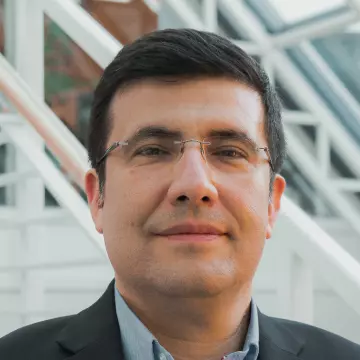Opinion:

No papers, no treatment
OPINION: There is a need to ensure that undocumented immigrants are included in healthcare services.
Improving emergency and preventive healthcare access for immigrant populations without legal status is essential for building sustainable, resilient urban communities.
This effort aligns closely with the UN's sustainable development goals (SDG) 11 – focused on inclusive, safe, and sustainable cities – and SDG 3, which promotes good health and well-being for all. To achieve SDG 11 and SDG 3, we must address the urgent needs of all urban residents, regardless of immigration status.
Many immigrants without legal status rely on emergency services as their primary healthcare option.
As the International Organization for Migration (IOM) highlights, most migrants live in cities. This shows the importance of integrating immigrants without legal status into urban planning and healthcare policies. Ensuring that all residents can access essential services, especially in emergencies, will strengthen public health and resilience.
Illegal immigrants face obstacles
However, immigrants without legal status represent one of the most vulnerable groups worldwide. They face significant obstacles when seeking healthcare, particularly emergency services.
Around 281 million international migrants exist globally. Many of them lack legal status in their host countries.
In the United States, approximately 10.5 million people, or 3.2 per cent of the population, live without legal documentation. In the European Union, the number of unauthorised migrants is estimated to be between 3.9 and 4.8 million. Norway has between 18,000 and 56,000 illegal immigrants as of 2024.
These individuals face numerous barriers, such as lack of insurance, fear of deportation, and language challenges. Excluding them from healthcare systems presents both humanitarian concerns and public health risks, as delayed or denied care often leads to worsened health outcomes. This could affect the wider community.
Key barriers to healthcare access
For cities to be truly sustainable and inclusive, all residents must have equitable access to essential services, including emergency and preventive healthcare.
However, individuals without legal documentation often face substantial barriers that hinder this access.
Key barriers include:
- The fear of deportation discourages many undocumented immigrants from seeking emergency or institutional care. This issue affects their health as well as the broader public health of urban areas, as untreated health issues can have community-wide implications.
- High healthcare costs and lack of insurance make both emergency and preventive care nearly inaccessible for undocumented individuals.
- Language and cultural misunderstandings can lead to inadequate treatment, creating disparities in care. Effective communication is essential for ensuring that all urban residents receive appropriate healthcare.
- Limited healthcare facilities in some urban regions and transportation challenges prevent timely service access. Addressing these logistical issues is crucial for creating cities that can respond to the needs of all residents.
- Documentation requirements often lead to delays or denial of care, leaving immigrants without legal status vulnerable.
- Many unauthorised immigrants lack awareness of their rights and available services, leading to underutilisation of healthcare. Community education initiatives can bridge this gap.
Overcrowding and increased costs
Without preventive care access, many immigrants without legal status often rely on emergency services as their primary healthcare option, contributing to overcrowding and increased costs.
This reliance not only delays treatment but also exacerbates health issues, placing additional strain on emergency resources. For example, pregnant undocumented women often miss out on prenatal care, raising the risk of complications that could have been prevented with early intervention.
Pregnant undocumented women often miss out on prenatal care, raising the risk of complications
For individuals with chronic conditions like end-stage renal disease, inconsistent access to regular treatment raises morbidity and mortality risks. Many undocumented patients are forced to rely on emergency-only care, which can worsen their condition.
Building sustainable cities and inclusive communities
Ensuring access to comprehensive healthcare for immigrants without legal status is a crucial step toward building inclusive and resilient cities. Overcoming these barriers calls for coordinated actions across policy reform, education, and healthcare practices.
When everyone, including unauthorised immigrants, has access to necessary healthcare services, communities become healthier and more sustainable. This inclusivity strengthens urban spaces, promotes public health, and supports the safety and well-being of all residents.
Dismantling healthcare barriers for immigrants without legal status is a shared responsibility among policymakers, healthcare providers, and community leaders.
References:
- Kisa, S., & Kisa, A. (2024). No papers, no treatment: A scoping review of challenges faced by undocumented immigrants in accessing emergency healthcare. International journal for equity in health, 23(1), 184. https://doi.Org/10.1186/s12939-024-02270-9
- Mcauliffe, M., & Oucho, L. A. (Eds.). (2024). World migration report 2024. International organization for migration. Available from https://publications.Iom.Int/books/world-migration-report-2024
- World Population Review. (n.d.). Percentage of illegal immigrants by country. Retrieved 27.02.25 from https://worldpopulationreview.com/country-rankings/percentage-of-illegal-immigrants-by-country
Read also:
Share your science or have an opinion in the Researchers' zone
The ScienceNorway Researchers' zone consists of opinions, blogs and popular science pieces written by researchers and scientists from or based in Norway. Want to contribute? Send us an email!






























